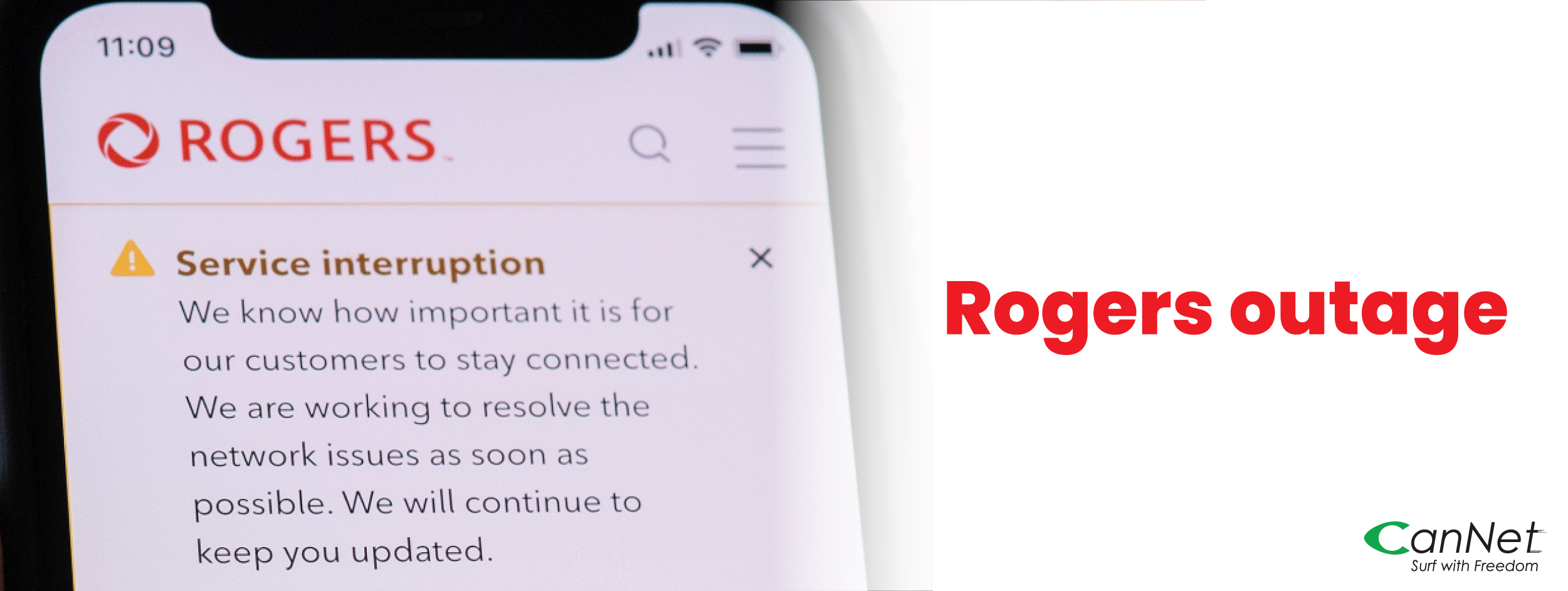Rogers internet outage: why Canadians keep suffering from high internet prices
The Outage
On 2022 July 08, Rogers suffered a national-wide internet outage, causing mobile service and internet disruption to users across Canada. This internet outage also caused thousands of businesses out of service, and this includes Bank institutions, Government Agencies, and retail businesses. Users reported that they cannot use make 911 emergency calls during the outage.
As of July 08 at 4:30 p.m., the Internet had been offline for more than 12 hours, Interac debit card and EMT money transfer service experienced an interruption. The ArriveCan app went offline and travelers must have a paper copy of their vaccination status.
Rogers's other two brands, Fido and Chatr mobile also suffered the same network outage. People could not make regular phone calls even 911 emergency calls were unavailable.
Tyler Chamberlin, an associate professor at the University of Ottawa's School of Management, told the media: "It's hard for people to understand how dependent you are on online services without being disconnected. Therefore, being off the Internet is a huge disruption to people's lives.”
He also believed that “the same outage may occur in the future, as technical systems always face inevitable failures. So the idea that we want to avoid this company completely is probably unrealistic.”
Also, we do not have too many options for internet service because lacking competition in the market.
About the competition
1. It is not easy for new players in the market
Although the Federal government has already lowered the barrier to entering the telecom industry, you do not see many new players entering the market. Why?
Part of the reason is that it's hard to start from scratch; you must be able to “steal” customers from existing providers and get them to drop Rogers and/or Bell. You need to spend so much of your budget on promoting your brand to let people know you exist out there.
The big 5 Canadian Internet Service providers (ISPs) like Bell, Rogers, and Shaw. These ISP giants dominate approximately 74% of the market share in Canada. Thus, it is not easy for new players to “acquire” users from the big guys.
2. The wholesale Price
The internet wholesale rate is the regulated price determined by the Canadian Radio-television and Telecommunications Commission at which the major operators must sell wholesale access to smaller and independent ISPs like CIK telecom, IVC, and CanNet.
In other words, if the major operators like Roger and Bell decrease the wholesale rate, more new players will come in which will lead to more competition. More importantly, decreasing the wholesale rate can also reduce the internet bill to customers by 85%.
In 2019, the Canadian government wanted to ensure all Canadians would benefit from high-speed internet at a more affordable price and wanted to ensure that the CRTC was doing its job monitoring the Canadian internet market, which aims to have more competition and reduce the wholesale internet price for smaller ISPs like CanNet Telecom. CanNet is one of the ISPs that is providing more affordable and reliable internet while fighting for more competition on the internet service market in the hope that more competition will bring the prices down for consumers in Canada.
In 2019 November, the major ISPs in Canada filed petitions against CRTC’s decision. They believed to lower the wholesale rate may reduce the incentive for expanding network infrastructure in smaller towns and rural communities.
So in 2020, CTRC says they made a mistake in ordering all the major ISPs to decrease their wholesale rate. So those major ISPs won the final game, and Canadians are still suffering from high internet prices dictated by the likes of Rogers.
Just as Tyler Chamberlin believes:” the same internet outage may occur in the future.” But as consumers, we should not put all the eggs in one basket. It is better to use different providers for cell phones and the internet.

